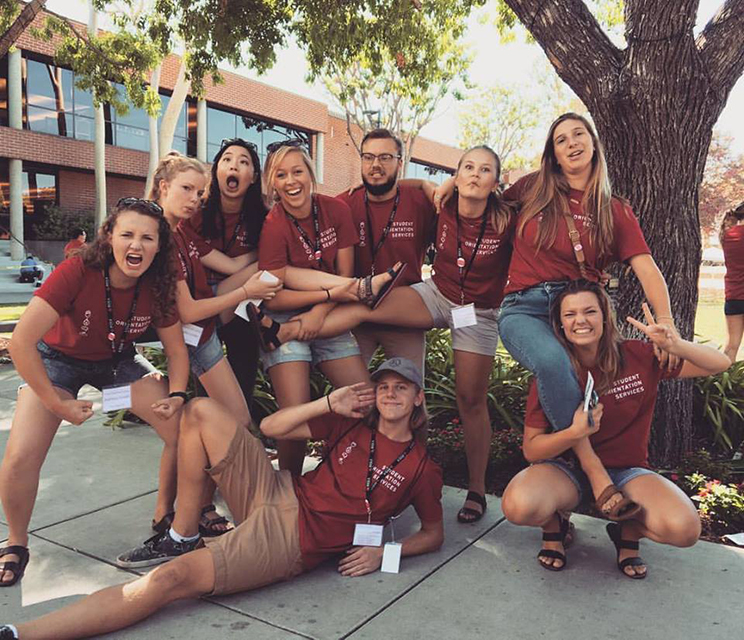A freshman steps onto Biola’s campus as a student for the first time. Their stomach knots itself. Their feet carry them under the banners flying high, a brilliant yet blinding flash of white and red. Orientation is here.
Large crowds of returning Biola students stand as far as the eye can see, decked out in red shirts with the mighty identifier: Student Orientation Services. The day kicks off with hilarity as SOS leaders perform a witty skit describing campus culture and the do’s and don’ts of living in the Biola community.
Just having a good time
Nadine Sandoval, sophomore nursing major, spoke on what participating in SOS as a leader means to her. Hired in February and training since March, Sandoval explained their preparation was sufficient and has allowed the excitement to build for the months leading up to SOS week.
“Now we’re here and, oh gosh, we’re so excited. We’ve been praying for these students, preparing and doing everything we can to make them comfortable as they transition here, just way easier for them and their families. It’s been amazing,” Sandoval said. “Throughout this week, it’s going to be great just bringing them in and just having a good time with them, welcoming them into the Biola community.”
Training for SOS leaders may seem grueling to those outside the bubble of excitement, but the dedication with which these students carry their responsibility makes the process a breeze. Lizzie Pintarich, sophomore public relations major, confessed a profound excitement for a long-awaited moment: SOS opening day.
“Something I told my students is that this week has just been on my heart since pretty much last year, since I went to the meeting to find out what SOS is,” Pintarich said. “Just seeing how God is going to write their story is just really exciting to me. And having it all here, it’s very surreal. During the first hour it’s like, ‘It’s real, it’s happening,’ so we’re super excited.”
Mixed feelings
Maris Thompson, sophomore accounting major, remembers her SOS week as pleasant but somewhat overwhelming. Though she admits it was helpful in pushing her to socialize with those she never would have otherwise, the necessity of such a plethora of events was lost on her.
“It was overwhelming, because it’s a new — it’s all new. And it’s scary because I didn’t really know anyone coming into Biola,” Thompson said. “If you’re not forced to do something, you won’t go out and do it. I made great friends on my floor, which I’m still friends with them … But then you only stick to the people who are just like you.”
Many students have mixed feelings about the week and experience, from appreciation to mild annoyance. Much of this disparity finds its roots in leaders, events and the randomized student groupings. Leaders try their best to connect with their students, but the weight of balancing classes and managing their own lives can often get in the way. However, students agree that whether or not SOS week is necessary, the amount of work leaders put it mandates more than volunteer hours.
“I know my SOS leader as well, we had a class together my first semester, actually. I feel like if I didn’t have a class with her, I don’t think I would have talked with her. But because we did, we could continue. She’s great, I love her,” Thompson said. “But they’re not getting paid. I feel like with all the stuff they do, they should get paid.”







